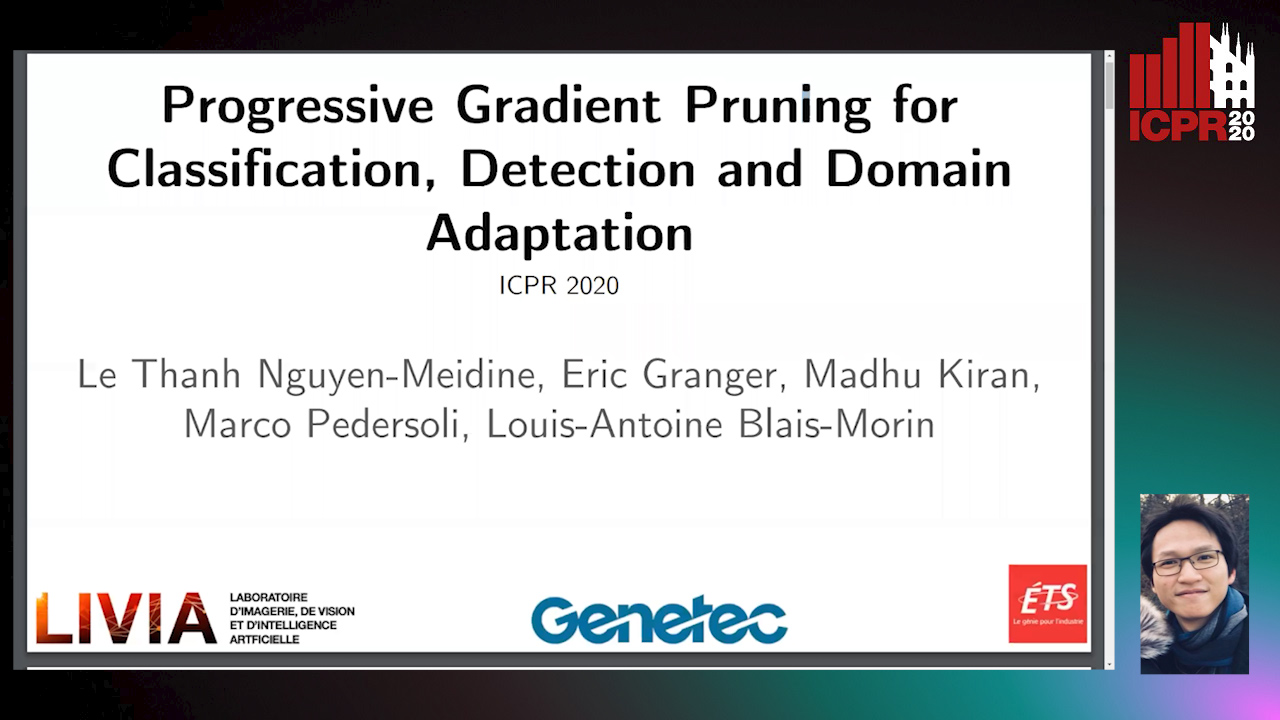Marco Pedersoli
Papers from this author
Convolutional STN for Weakly Supervised Object Localization
Akhil Meethal, Marco Pedersoli, Soufiane Belharbi, Eric Granger

Auto-TLDR; Spatial Localization for Weakly Supervised Object Localization
Progressive Gradient Pruning for Classification, Detection and Domain Adaptation
Le Thanh Nguyen-Meidine, Eric Granger, Marco Pedersoli, Madhu Kiran, Louis-Antoine Blais-Morin

Auto-TLDR; Progressive Gradient Pruning for Iterative Filter Pruning of Convolutional Neural Networks
Abstract Slides Poster Similar